New Covent Garden Flower Market is one of the supporters and partners of the inaugural National Florist Day (NFD), which will take place on June 8th, 2024.
Organised by perennial industry champion Caroline Marshall-Foster of The Florist Magazine publisher Purple Spotted Media, NFD promises to be “a rolling campaign and awareness day to celebrate all that is wonderful about our profession and the people in it”.
The brainchild of Caroline, NFD has been her dream for a number of years and she is thrilled to finally be in a position to make it happen, and for the market to support it. “To have Covent Garden Flower Market involved is brilliant,” Caroline said. “My Mum used to buy from it way back in the 50’s when she had shops, I have literally grown up and worked with it since the 70’s so I am chuffed it is a Patron,” Caroline says.
“The last few years have been particularly challenging for florists and the supply chain, but everyone still battles on and with a determination to succeed.
“The industry has never been very good at promoting just how wonderful the traditional sector is. It is driven by hugely skilled professionals who are also the very backbone and magic makers for the all-important gift and special occasion market.”
Registration for florists is totally free and open to every type of florist. Since what Caroline terms a “very soft” launch on March 3rd more than 500 florists have signed up, which is a spectacular start. There is a cut-off date of April 20th for registrations, simply to ensure that those involved will receive the requisite support prior to the big day. “The thought of at least 600 florists sending out a collective message and doing things around the UK and Ireland at the same time thrills me to bits,” said Caroline, trying to forget all the work that looms!

There are three ways that the campaign will engage with and promote the industry, she added: Ambassadors; Faces of Floristry nominations; and consumer facing activities.
Caroline said: Other fun initiatives include a Floral Jukebox Jury… what song do you reckon sums up a florist? and a Flower Icons challenge… which blooms will make it to the 2024 Top Ten! A cool website is being built with all of this and oodles more information about our amazing industry and this will be launched later in April amidst a host of consumer press marketing.
“But the most exciting bit is the awesome Tool Kit - packed with ideas on how you can get involved and make the most of the day … and the week leading up to it!”
NCGM Press Officer Tommy Leighton said: “This feels like an event that has been a long time coming and of course, we’d love to see as many florists as possible involved in our core catchment area of London and the South East. As a Patron of NFD, the Flower Market will feature in the event’s communications initiatives, across its website and in The Florist. Like any campaign of this kind, how much the Market is able to get across its own messages of support and appreciation of the legion of florists who are our customers will depend very much on how we use the campaign as a Market and how all of the individual businesses here engage.
“There is a special logo available to show that you are supporting NFD and there are various initiatives to tap into, as mentioned above. We will also be marking the event in the market – I’ll release more details on that further down the line.”
Spring is firmly here and asparagus is star of the show. English asparagus is available but volumes are slowly increasing. A spell of warm weather will speed up the crop.
The picture below shows a rarity - wild asparagus foraged in France, which shows the original plant.

Wild garlic is a big seller at this time of year. It's peak season for foraged crops in the UK, which will soon start to flower. Wet garlic is also available.
All grades of Jersey Royal potatoes are here - this photo shows the chat / pearl grade, which is the smallest in size.
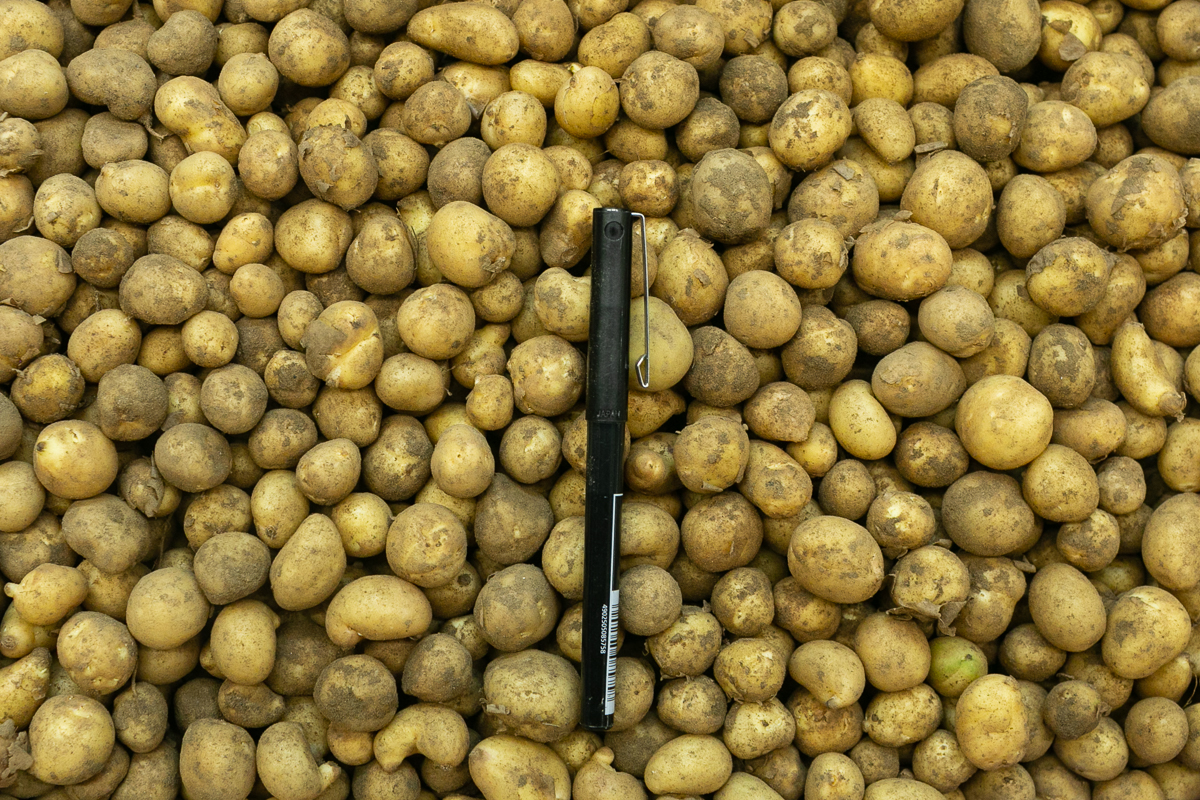
Peas and broad beans are available and typically Spanish, French or Italian.
You can still find boxes of Yorkshire forced rhubarb but the outdoor crop is now available at a lower price.
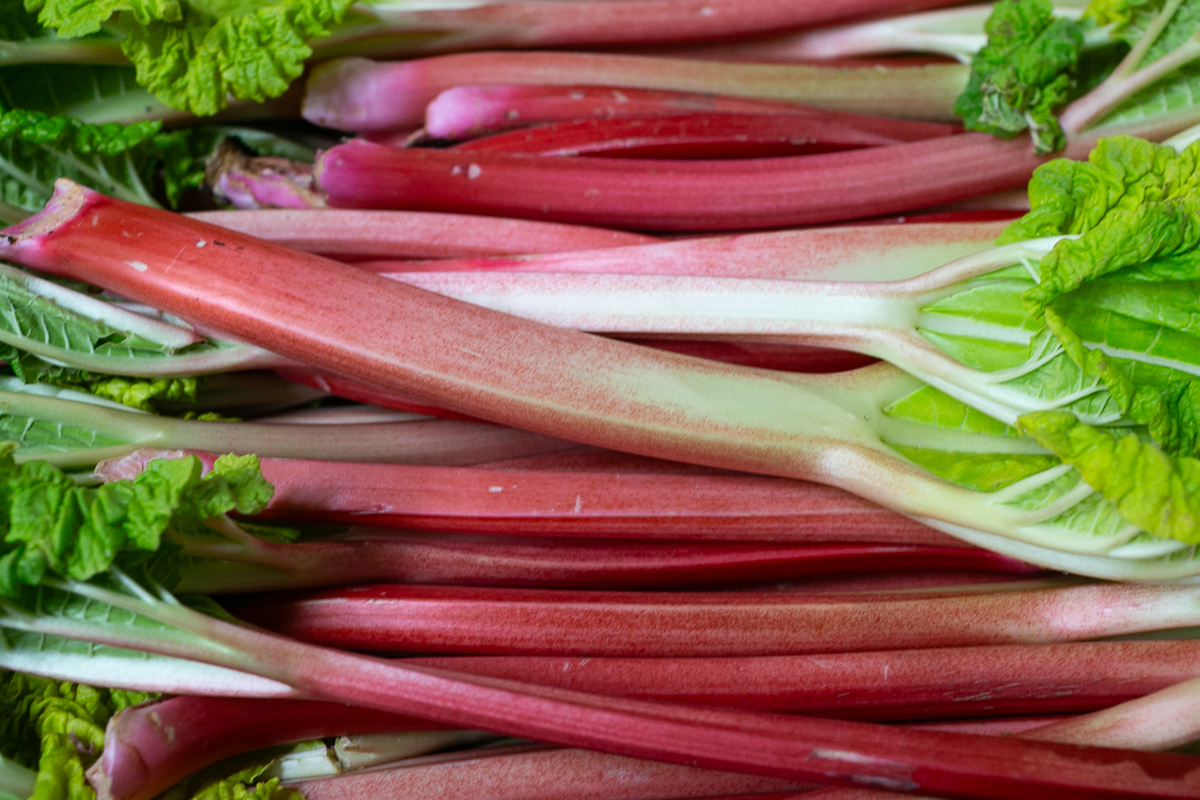
Other UK crops for April include purple sprouting broccoli. In general, British brassicas are now coming to the end of their prime season as they prefer colder weather. But you will still find kales, cauliflowers and cabbages.
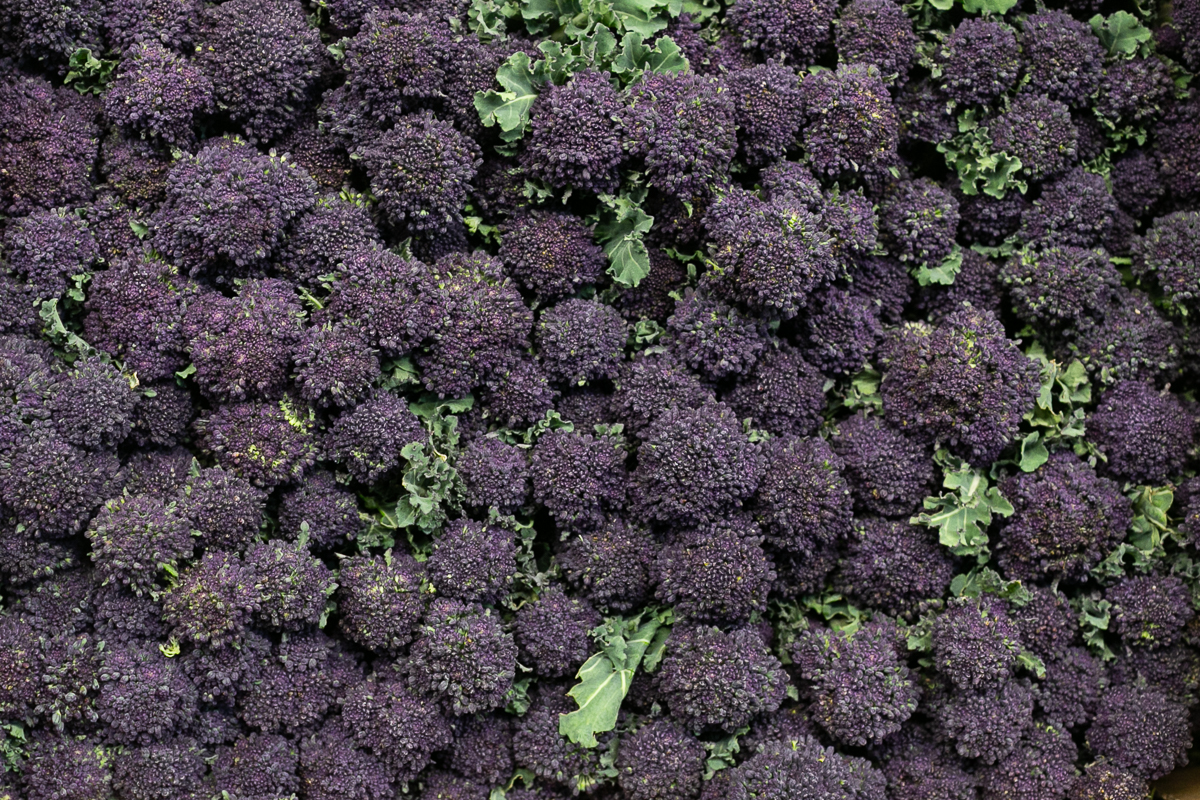
This photo shows some stunning English pak choi. Watercress is also a good call at this time of year.
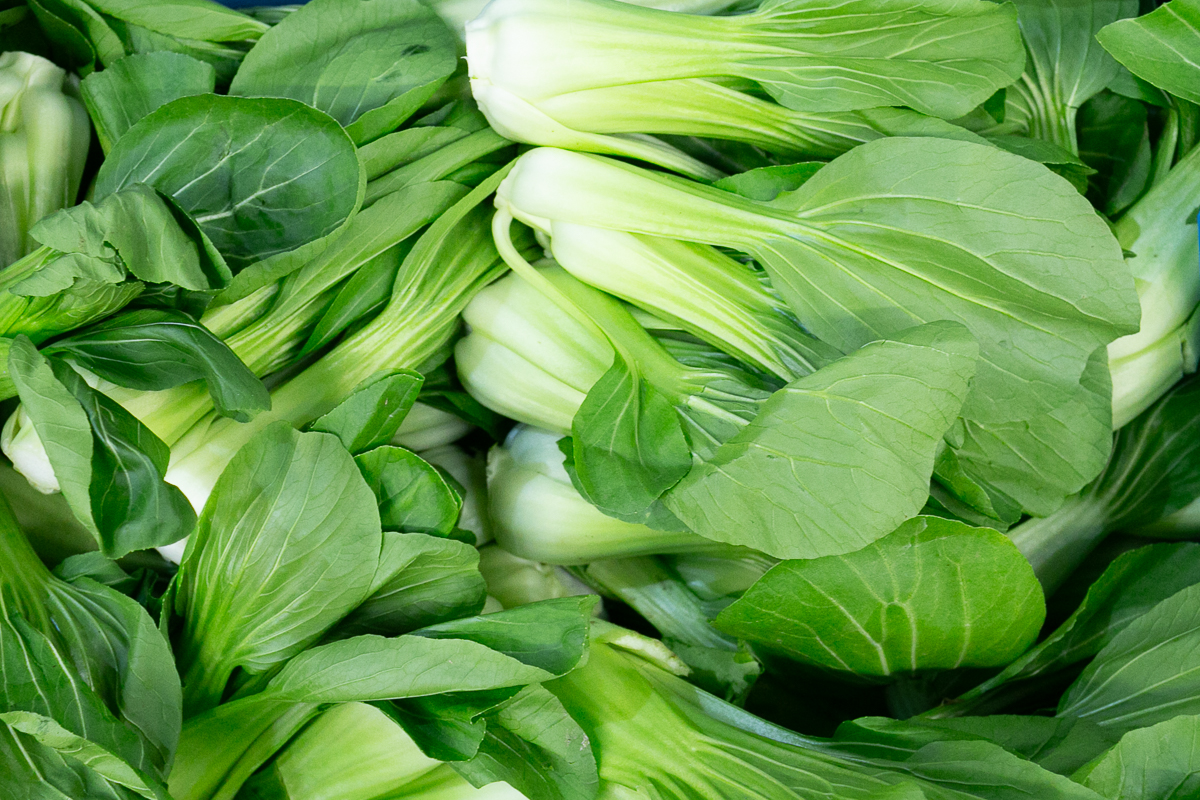
From Italy and Spain, the citrus season is coming to an end. Nardicotts are the last of the easy peelers. Blood oranges will be available for a couple more weeks.
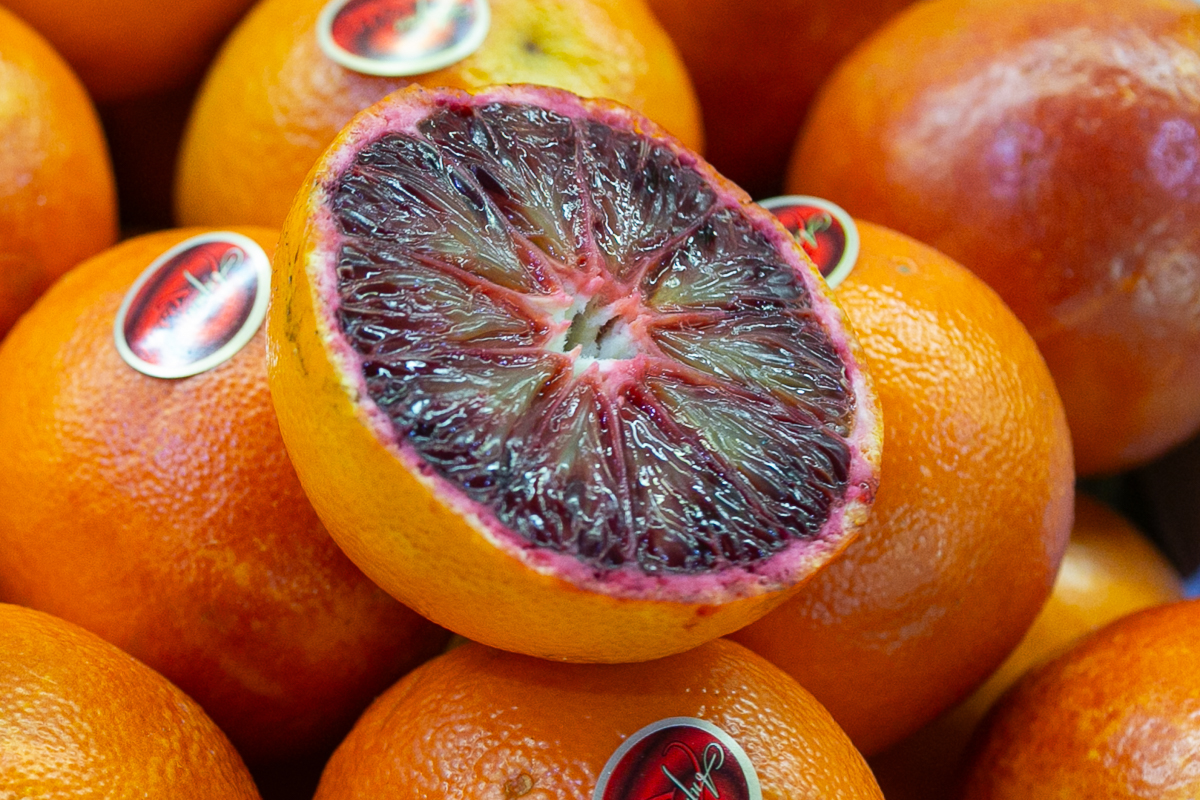
Strawberries are surprisingly good in April. From France, you can find batches of Gariguettes, for example - pricey but excellent flavour.
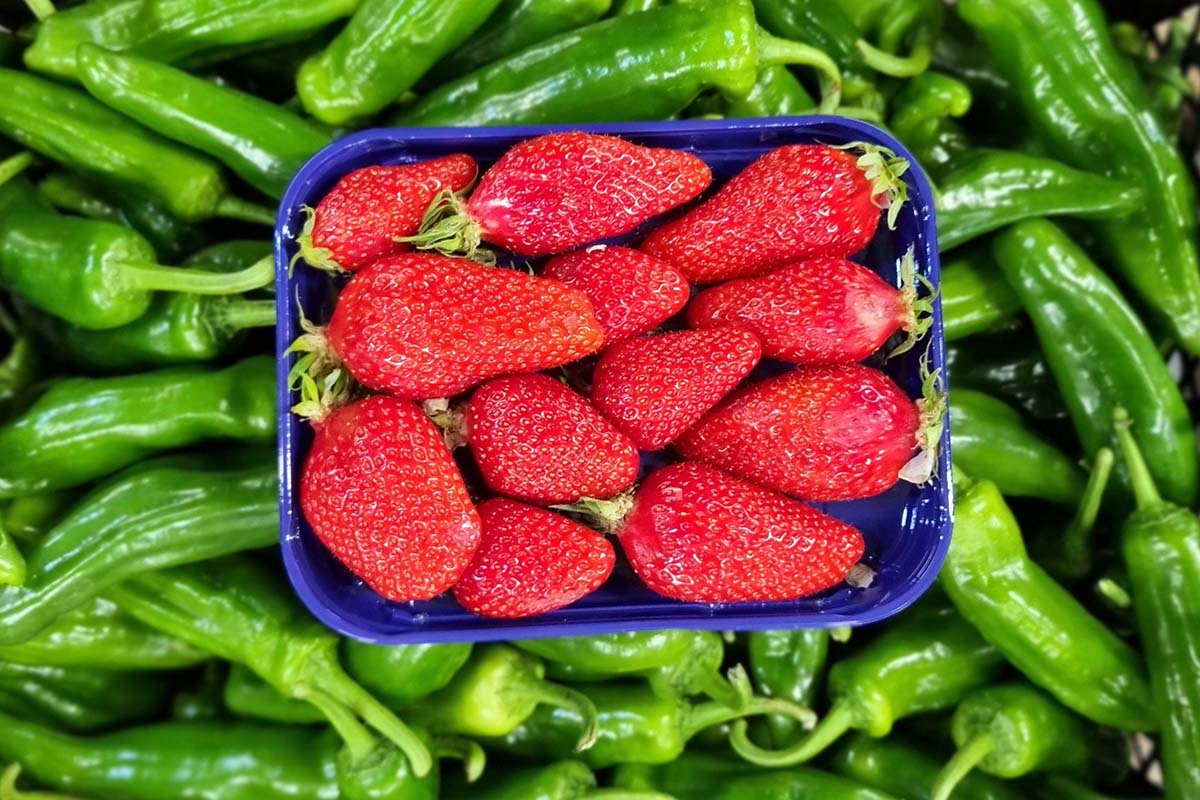
Alfonso mangoes have a short season. Due to their short shelf life, they are not widely available on Buyer's Walk. There are some lovely figs from Brazil and Peru.
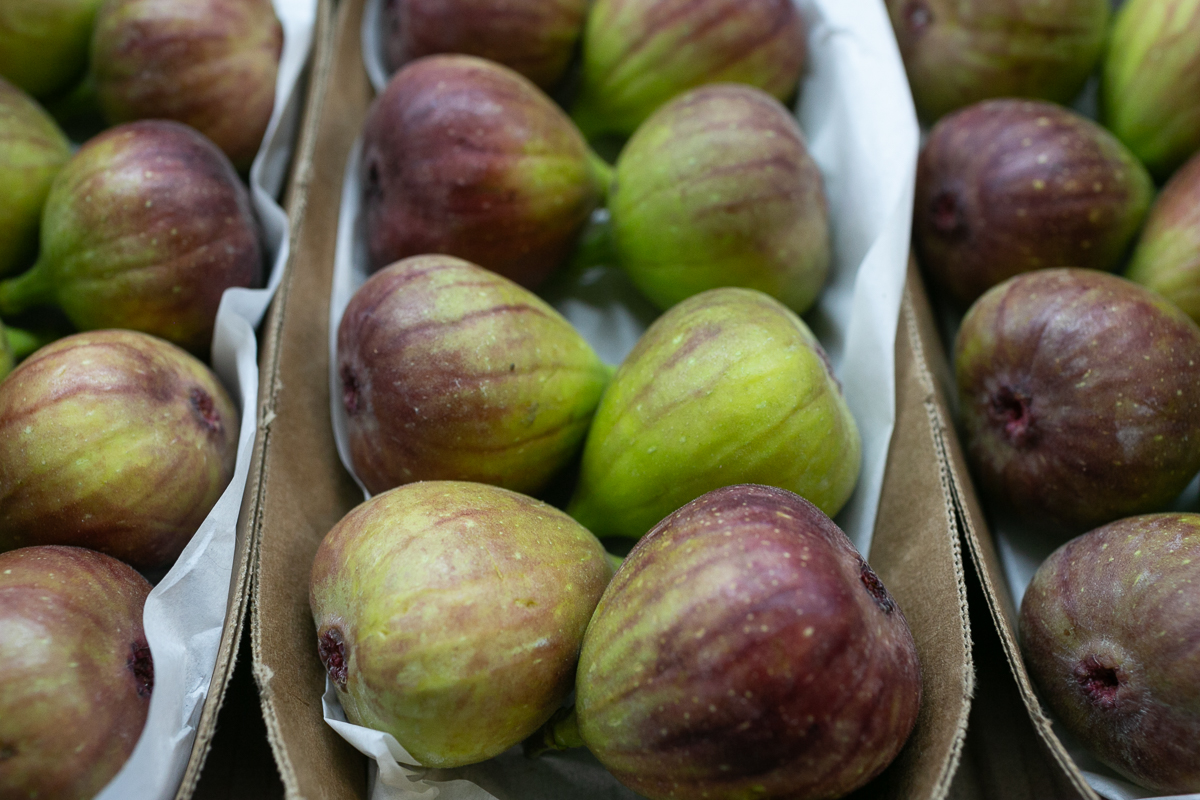
Other highlights from the Continent include these beautiful zucca squashes from Italy.
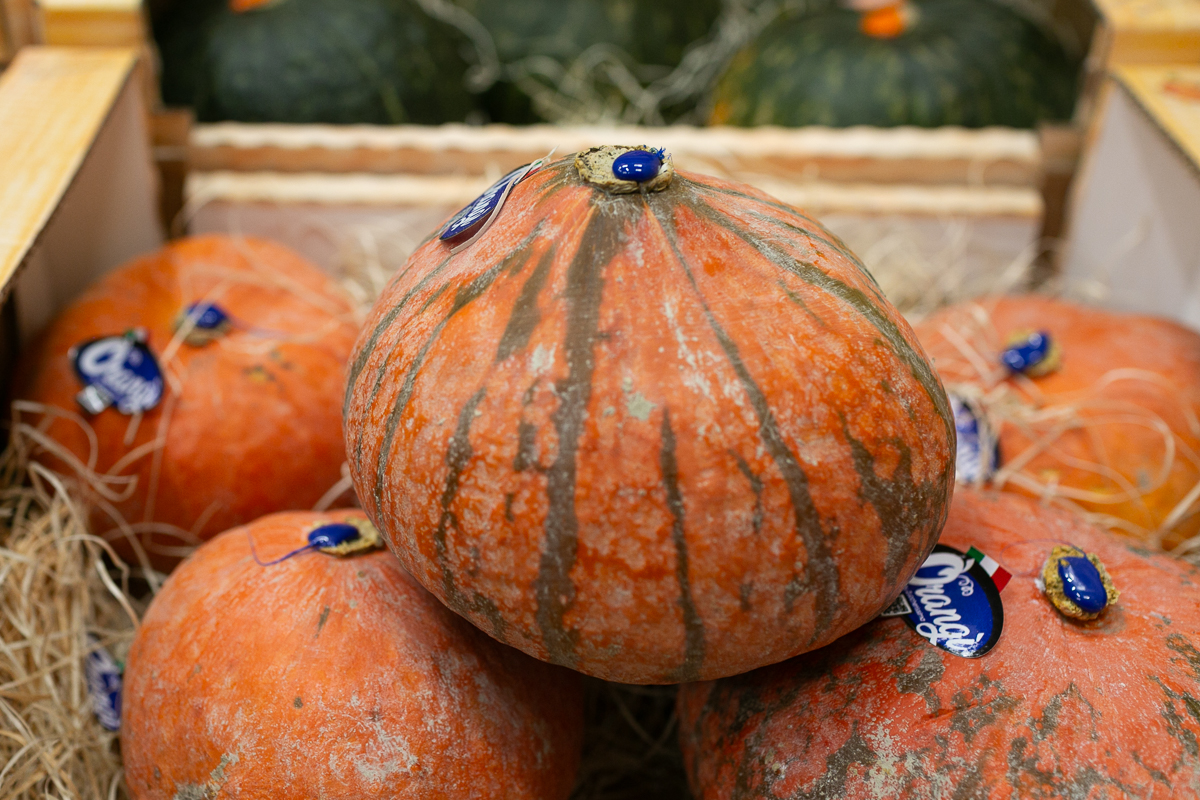
The radicchios are now end of season. Every tried a calcot? Fantastic alliums from Catalunya, traditionally charred on the grill and served with romesco sauce.
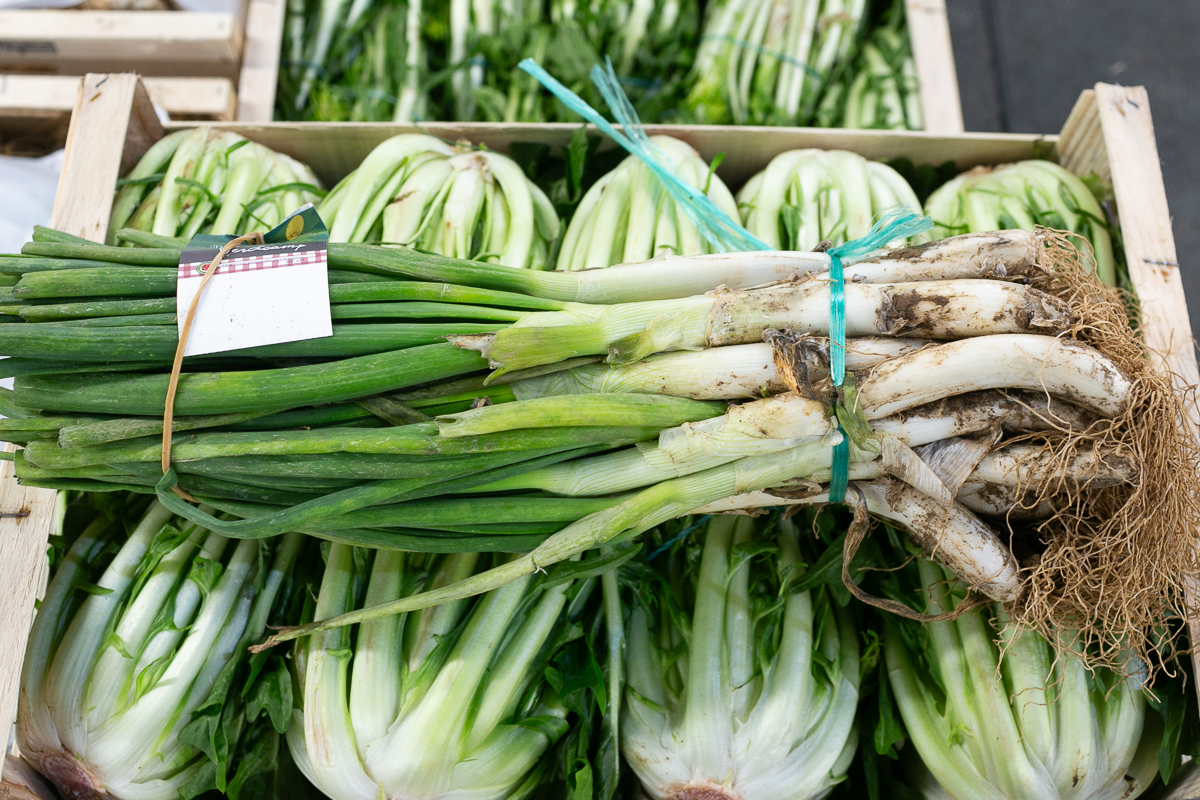
Courgette season has started in France so you will find a range including yellow and green round courgettes. Borlotti beans are just underway. Artichokes are still a good bet.
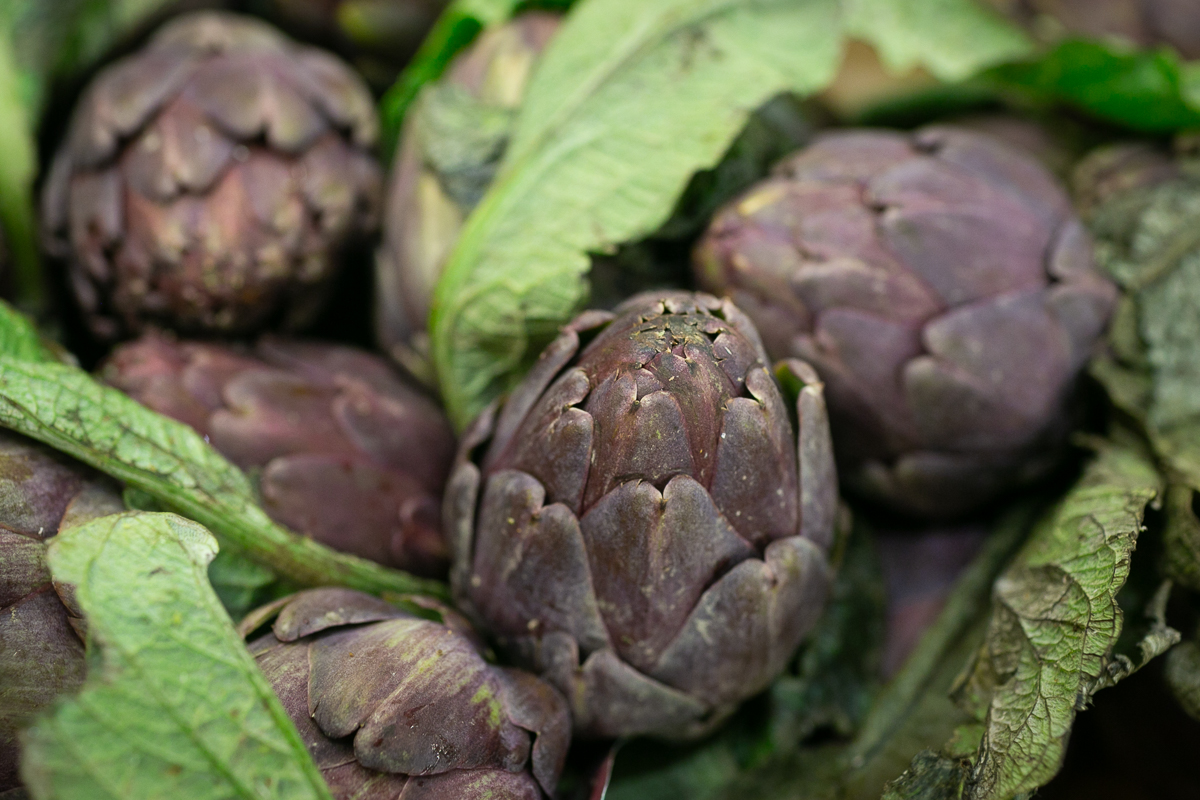
For something unusual, here are tomatillos - a key ingredient for Mexican salsas.
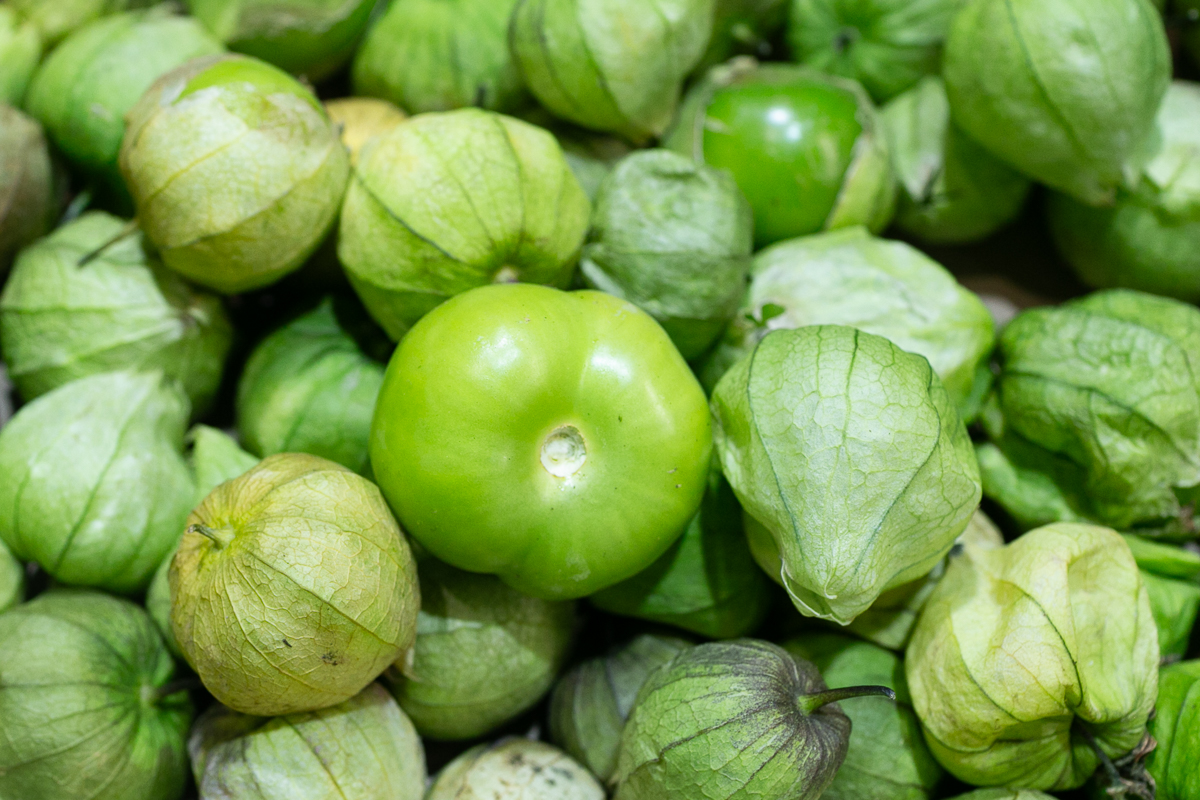
Wild mushrooms this month include St George and, soon, the start of Turkish morels.
See you in May for our next Market Report.
New Covent Garden Market’s very own Frankie Spivey has scooped the ‘Rising Star’ prize at 2024’s Wandsworth Women’s Enterprise Awards.
Frankie is the founder of Frankie’s Brownies, a growing dessert business creating delicious home-made chocolate brownies from Mission Kitchen, a commercial shared-kitchen space within the market’s Food Exchange building. “It feels amazing to be recognised for all my hard work and determination,” says Frankie, who was up against a shortlist of three other local entrepreneurs.
The Rising Star award – which recognises young women aged 16-35 years whose examples serve to inspire our next generation - crowns an intense period of growth where Frankie’s business has gone from strength to strength.

Above: Winner of the ‘Rising Star’ award at the Wandsworth Women's Enterprise Awards 2024: Frankie Michaela Spivey – Frankie’s Brownies Ltd.
“It all started for me when I’d bake brownies at home and bring them in work for my colleagues as a treat,” explains Frankie, who started her business in 2020 during the first lockdown. Joining Mission Kitchen back in 2022 proved the catalyst for bigger and better things as Frankie worked with companies such as WeWork, Getir and Compare the Market to create bespoke branded Brownies for events and gifting.
“Now I’ve got six freelance staff, working on producing our recipes, quality control of the products, and arranging delivery direct to clients. Now I’m expanding my production and have signed a distribution deal with a UK-wide restaurant chain.”

Above: The winners at 2024's Wandsworth Women's Enterprise Awards. Frankie is in the centre of the front row.
Find out more about Frankie’s Brownies here and about the Wandsworth Women's Enterprise Awards 2024 here.
CGMA is a public corporation that runs New Covent Garden Market, the UK’s largest fresh produce market, and is accountable to Defra. Wanda’s appointment has been made by Defra Ministers and is in accordance with the Governance Code on Public Appointments. All appointments are made on merit and political activity plays no part in the selection process.
Wanda takes up the role from 2 April 2024 for a four-year term. She will succeed John Lelliott, who will step down as Interim Chair after 15 months in the role. John will remain on the CGMA board as a Non-Executive Director until his final terms ends in September this year.
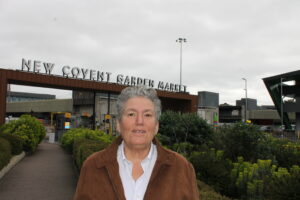
Wanda is currently Chair of Nuclear Transport Solutions and of the Uniform Network Code Modification Panel, a technical body in the gas industry.
She previously had a 25-year marketing career culminating as Managing Director of Air Miles, the British Airways-owned loyalty scheme. Since then, she has held several non-executive private and public sector roles.
Wanda specialises in providing strategic direction, risk management and creating successful management teams.
You can find out more about the purpose of CGMA here.
As we celebrate International Women's Day (IWD) on Friday 8 March, we meet some of the many women who call New Covent Garden Market home.
The annual event - always held on 8 March each year - is a great excuse for us to celebrate every single woman who works at New Covent Garden Market. Wholesale markets the world over have undeniably been male-dominated environments throughout history, however, in recent years, we've seen a steady increase in the number of women who work here, in various roles and positions.
This year's IWD theme is “Inspire Inclusion.” It envisions a world that is free from bias, stereotypes, and discrimination - a world where diversity is celebrated and difference is valued.
Below we showcase just a handful of the many woman based at the market. We can't show you them all here, but we do know the market is better for them, would not be as successful without them and we'd love to welcome many more females into our community.
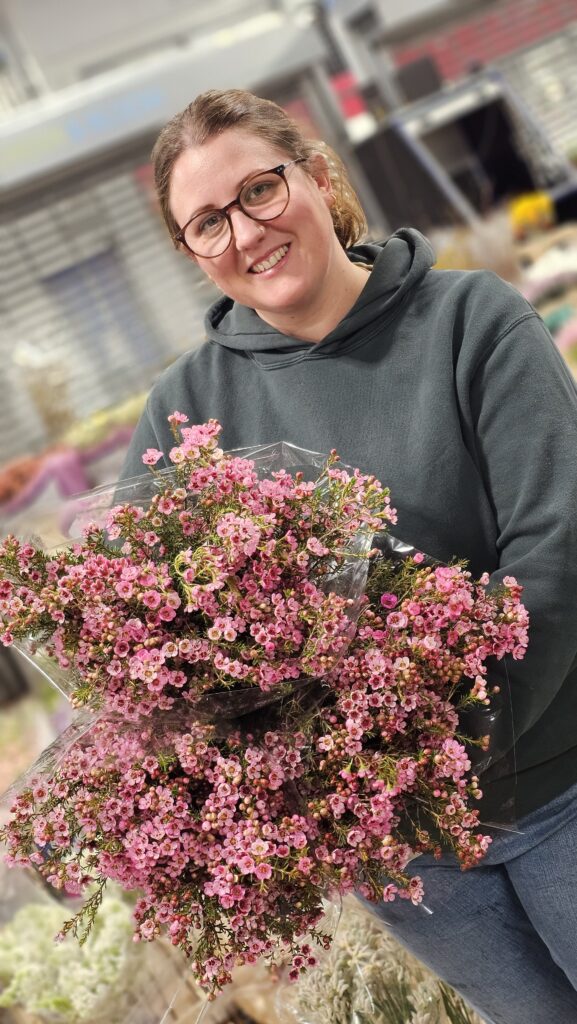
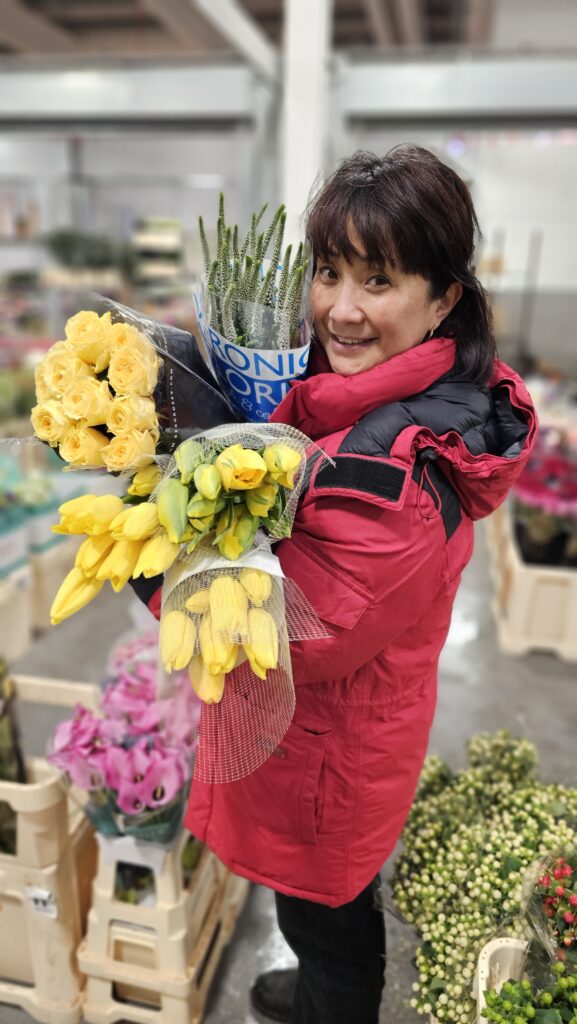
Above: Mo Sato-Rain has been a Sales Associate at Flower Market wholesaler R French & Son for the past three years.

Above: Frankie Spivey, owner of Frankie's Brownies, one of the many SME businesses based at Mission Kitchen, the shared-kitchen workspace based at the market's Food Exchange building.
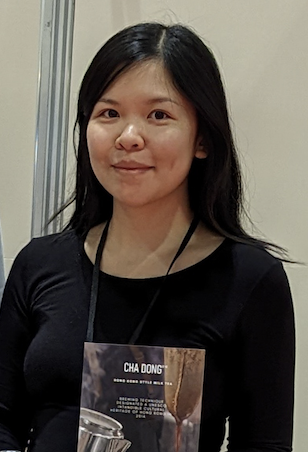
Above: Cassandra Liu, co-owner of CHA-DONG, another example of a successful SME businesses based at the market-based Mission Kitchen.
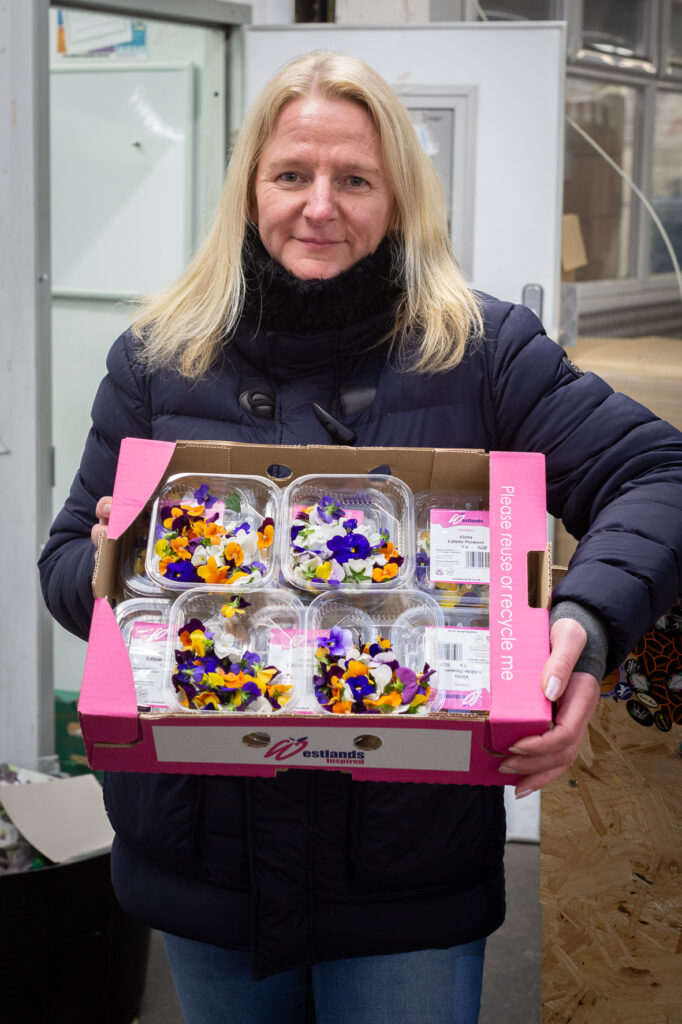
Above: Mary Brunning has been Stand Manager at Fruit and Vegetable Market business Neil Brown Herbs for the past five years.
If you're interested in working here, pop down to the market and talk to some of the traders - there are always opportunities. Or get in touch with traders directly - you'll find contact details via our Wholesalers' Directory here: Find a Wholesaler - New Covent Garden Market.
When Mick Reid made the short journey from Kennington Cross to start work in New Covent Garden Flower Market in late 1974, he was embarking on what is, to date, a 49-year relationship with what was then a brand-new market.
"Kennington Cross used to be railway sidings and they were my stomping ground as a kid. I had been doing an apprenticeship to become an electrician and earning £9 a week (and giving my mum £7!), while all my mates on the building sites were taking home £100 plus. So, I worked in a bar to earn money, was missing college and getting behind and the next thing you know the job came up here.
I started working for Covent Garden Market Authority, on the pitching gang, bringing the product into the market for the wholesalers. There were 14 of us and I had to do two months of training on the low-loading trucks, so officially I started in February, 1975. I did my forklift training too and there were only two of us who could drive them, so we were in demand. It wasn’t easy as there was a bank outside the market and in bad weather if you hit a bit of foliage you could be sliding down it!
It was important to get in and get to know people as, like lots of places, if your nose don’t fit...
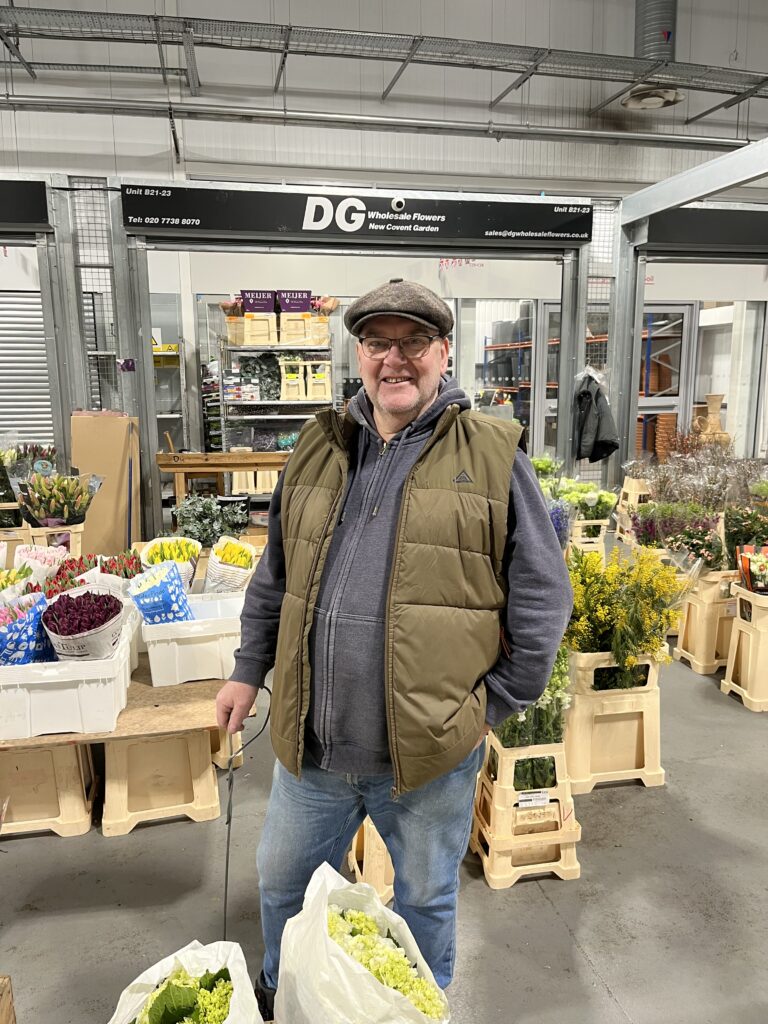
I was on there for 13 years and became the longest serving member and foreman. But the pitching gang was dwindling in numbers as other people started to do its work. I was on a low basic wage – you earnt money by collecting boxes or water for people. I couldn’t earn enough money to get a mortgage, so I became a fully-fledged porter and first I was night man, working for a lovely guy, Gordon at Pratley’s.
I thought I’d step in and find it easy, but I found the transition really hard, as there were so many porters and all the good 'turns' had gone to the regulars. So you had to run your nuts off to get new people and build your turns up that way. Gordon always wanted me to make more money from my turns as he knew that would encourage me to work harder for him, which it did. I was always happy to put myself out for others as it got you more work. Some of the younger kids even then didn’t want to do it and the older boys found it hard to adapt to a new market and new systems, but that worked for me as people kept coming back.
I moved around a bit in the early days as a porter - with a young family, you’d chase the money and it wasn’t too big a deal for the firms in those days. There were 76 porters getting a right good living; now there’s maybe three or four.
I did settle down though and was with SR Allan for 22 years. When they made me redundant, my world came to an end. It was all I knew and even though I started doing deliveries, I wanted to be here. I’d known Dave, the guvnor at DG Flowers, since he was working in the office at 14. I was lost and missed the friendship and camaraderie. DG had got really big so I asked Dave if he could use me for anything and he said ‘yeah, that’s fine’.
That was a few years ago. I get in at 10pm and put together the orders for customers in the West End – you’ve got to deck it, put it on the floor and into the annex so when the guys come in, they know that it’s all sorted for them. We trust each other. Dave knows everything will be spot on when he picks up an invoice and he has a head start over other companies, who come in later and look through stuff.
Sometimes I’ll finish work at 3, but still be here at 5 – there’s always something to be done and I won’t go home until I’m finished. It all helps the firm tick. The time for a cup of tea and a chat is at the end of the day. Young kids coming in now find it strange, they don’t want to get up in the morning and they want a social life. Work in the market and you don’t really have a social life, you basically have one day off and that’s to recover!
I haven’t been too well lately and the market has been very supportive. I had 28 years without a day off and I was ever so proud of that. When I didn’t come in one day, they couldn’t believe it. I couldn’t get out of bed!
I suppose it’s like Marmite – you love it or you don’t. To me it is a way of life. I loved the atmosphere from day one, it was a buzz. When it was busy, it was still friendly and everyone helped each other out. It was different gravy. I’m 69 now and I can’t imagine not being here."
The seasons are shifting with spring produce now flowing into the Market.
Peas and broad beans are from the Continent right now but British is to come.
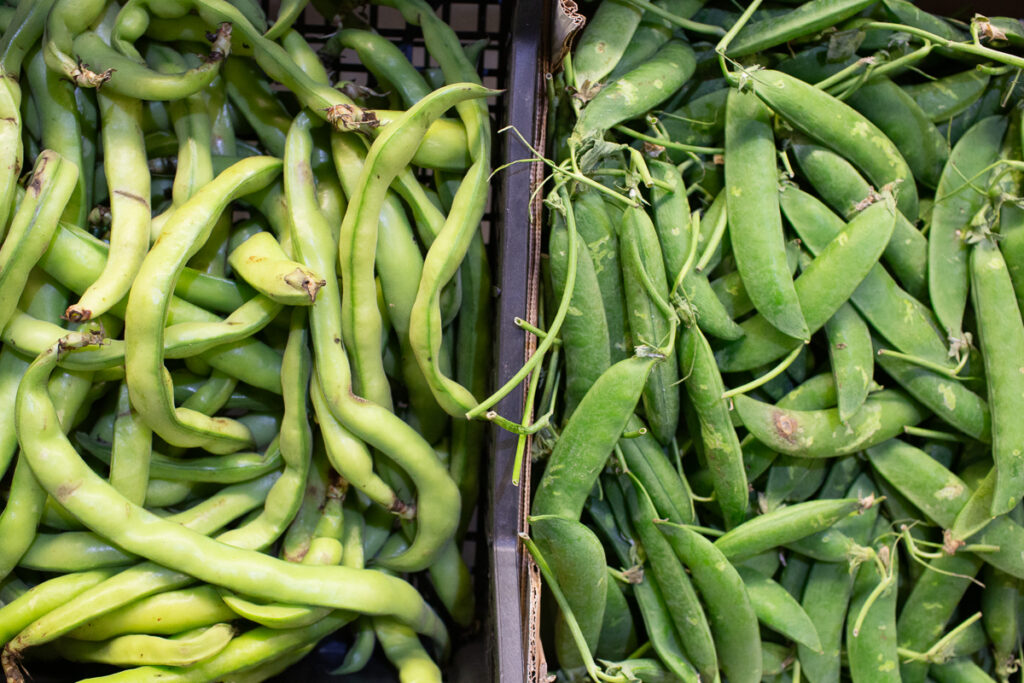
The first English asparagus is available but the season will start in earnest in April. White and wild asparagus from France and Italy also available.
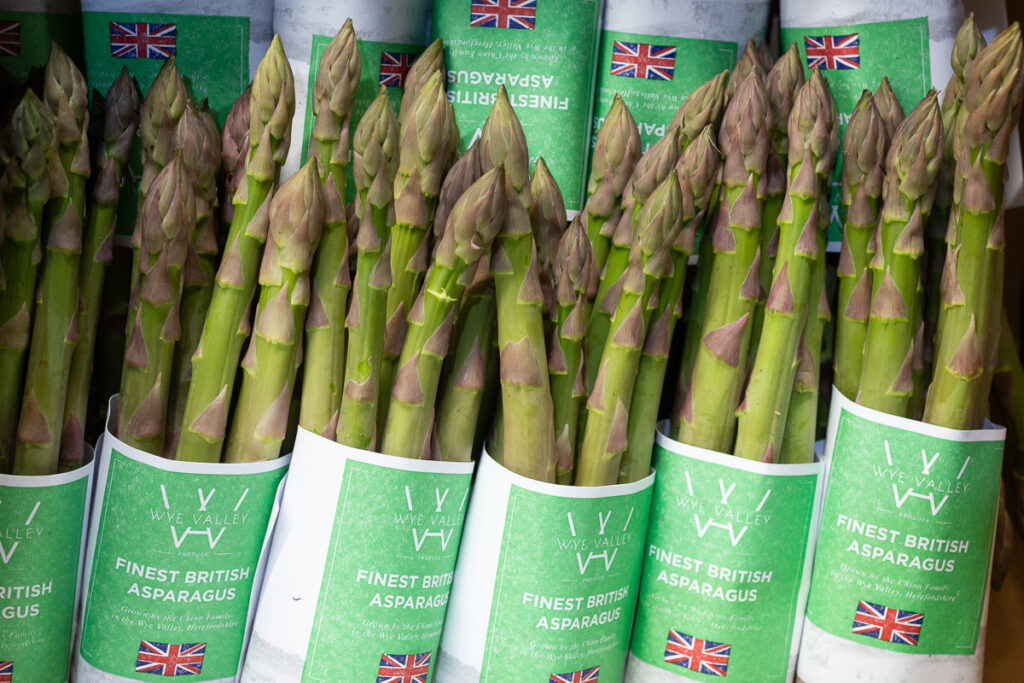
English forced rhubarb is still here but will be edged out by the outdoor crop as the weather warms up.
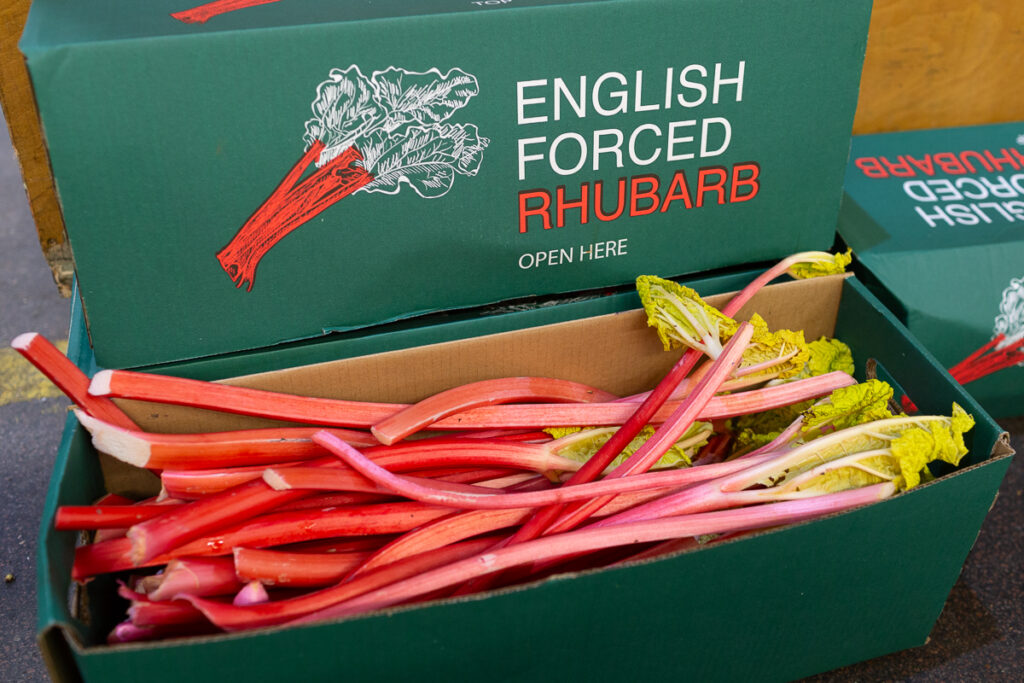
Blood oranges are still plentiful - mainly Tarocco variety. Other citrus includes Nardicotts, the late season easy peeler, clementines, mandarins and pomelos.
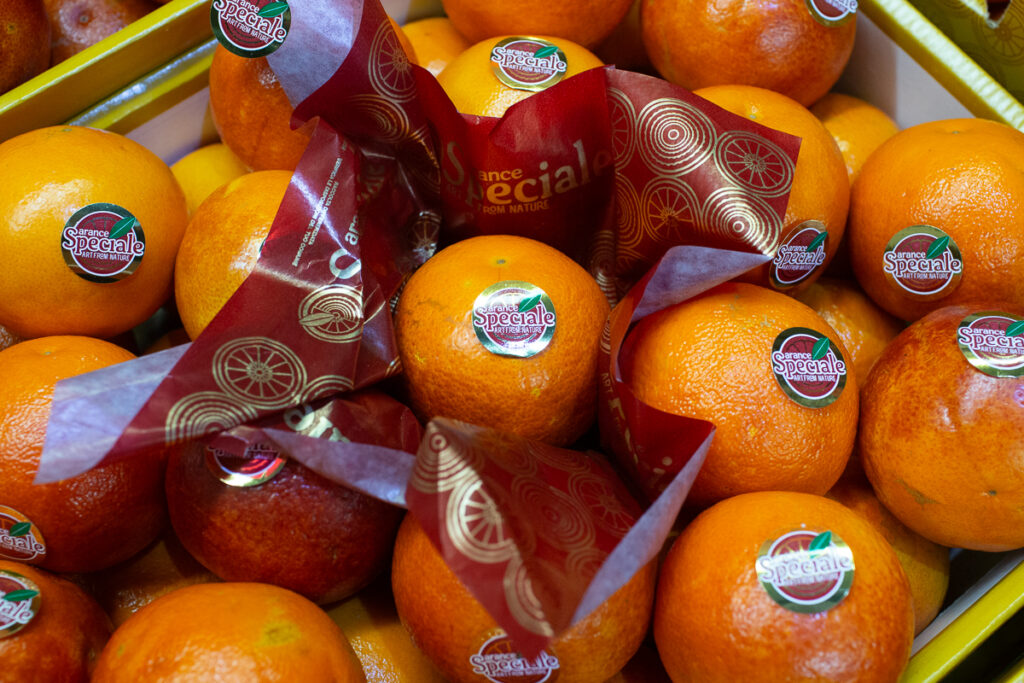
UK apples and pears are still available out of store. Other pear varieties include Williams from Italy and French Passe Crassane.
March is a good month for lychees, mangoes and pomegranates.
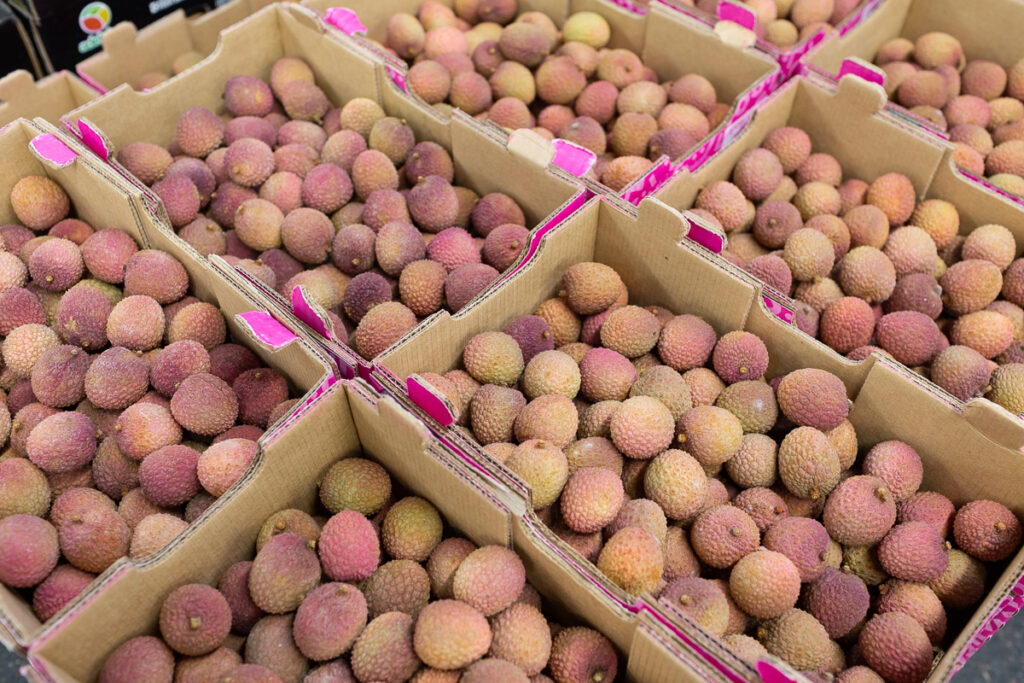
Gariguette and Frais de Bois strawberries are available from France and Spain.
On the veg front, there is a wide choice of artichoke varieties - Petit Violet, Calico, spikey etc.
Brassicas are still in fine form - Savoy cabbages are especially good in March.
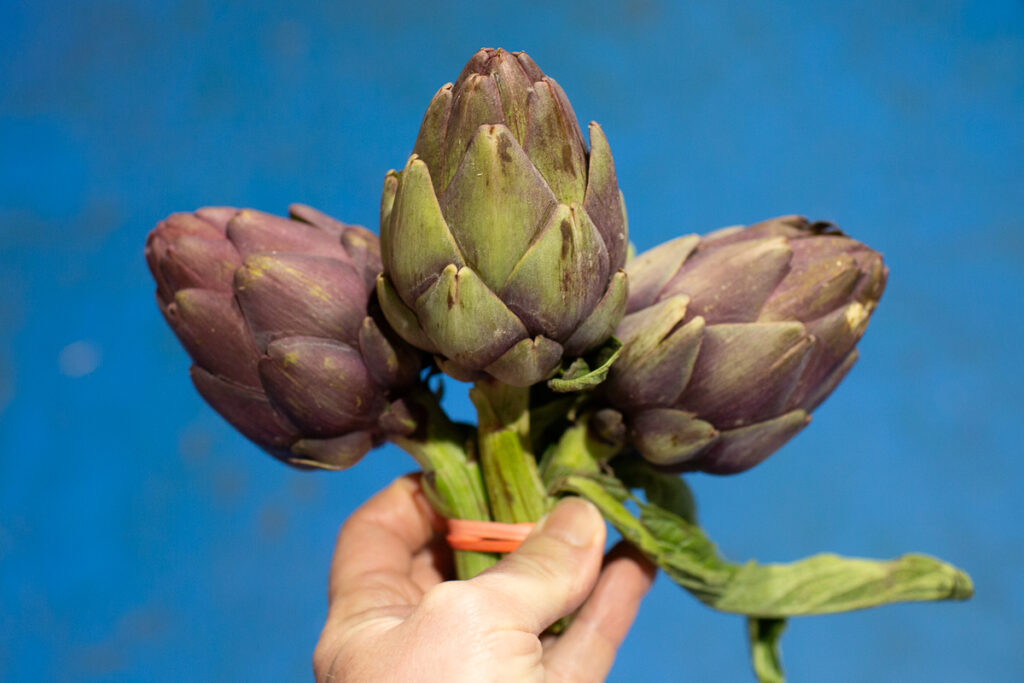
This month you will also start to see the first of the greenhouse-grown tomatoes. Below are some winter varieties, which are more savoury in flavour with a crunchy texture.
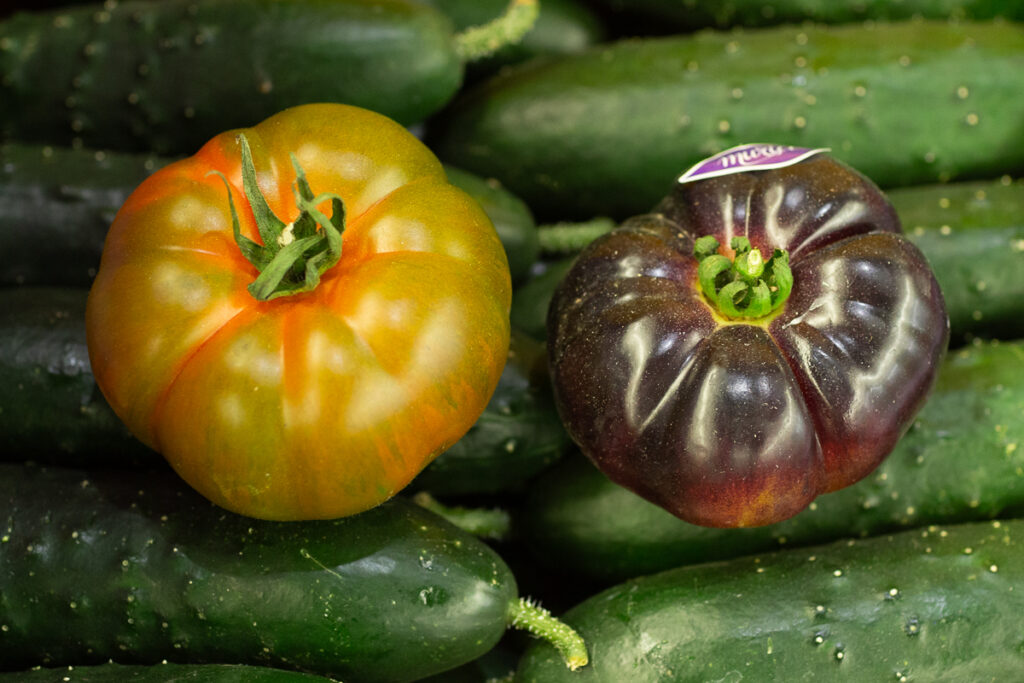
From the sunny south of Europe, courgettes include round and Tromboncino.
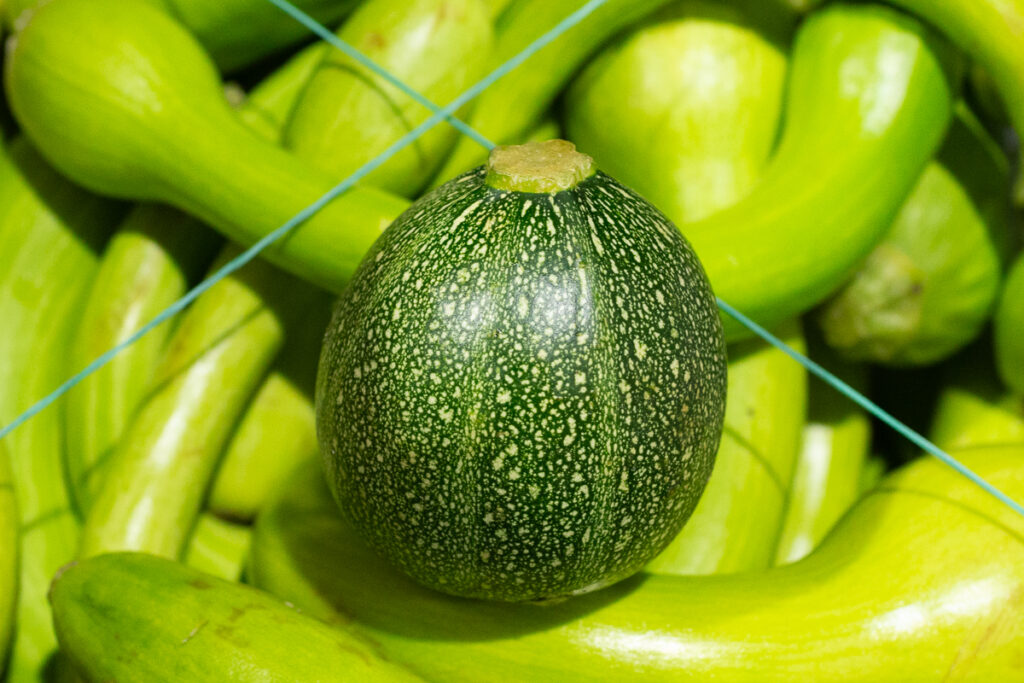
Other vegetables in season include beetroot, celeriac, wet garlic, agretti, puntarelle, cime di rapa and the radicchios.
For mushrooms, morels are still from China.
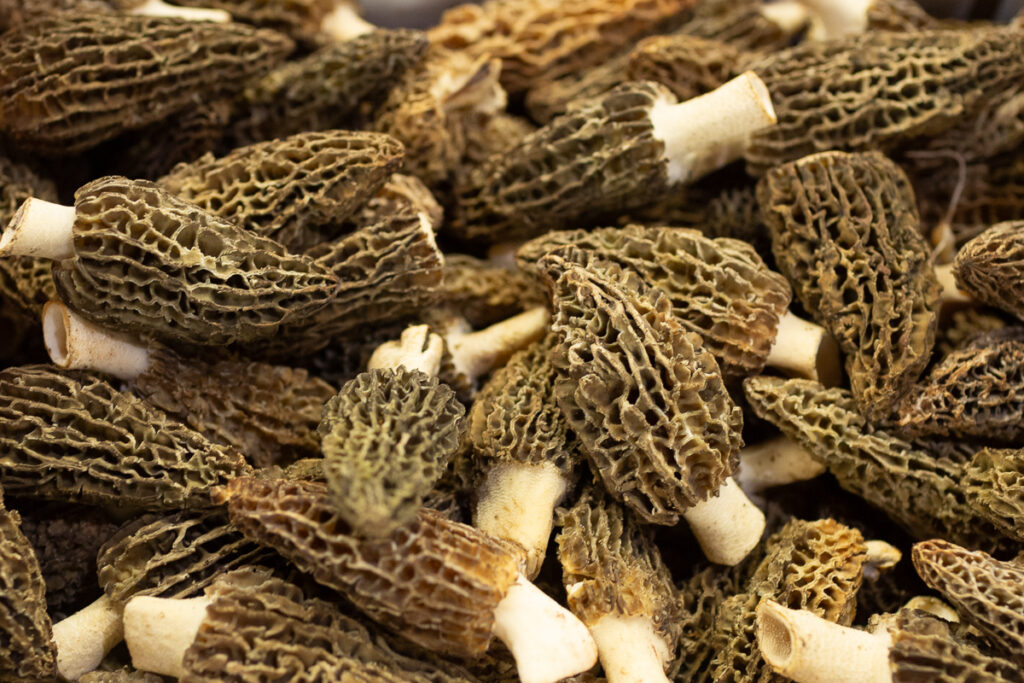
See you in April for the next Market Report and a full celebration of English asparagus.
Bryan Porter was part of the fourth generation to run his family’s eponymous foliage business in the Market. The Flower Market was in his blood long before he started working here in 1990. He tells Market Times the story of the company now known simply as Porters Foliage and looks at the current state of play
Let’s start where it all began – how did the Porters get into this trade?
In the early twentieth century, my great grandfather, Aaron Porter, was a feather collector, delivering into London from Sussex. One morning, he saw the activity in the old Covent Garden, went and had a look and discovered they were selling some cut foliage. He thought ‘there’s some of that near me’ and after a few conversations, began selling foliage to the traders at the market. From those beginnings, he decided to take a stand in 1910, first selling his own produce and then selling product supplied to him by other people.
The business began as Aaron Porter & Sons and at its peak, he had five shops in the market. The flower market was relatively small and they were selling from properties around Covent Garden, not in the main square, which was where the fruit and veg traders operated.
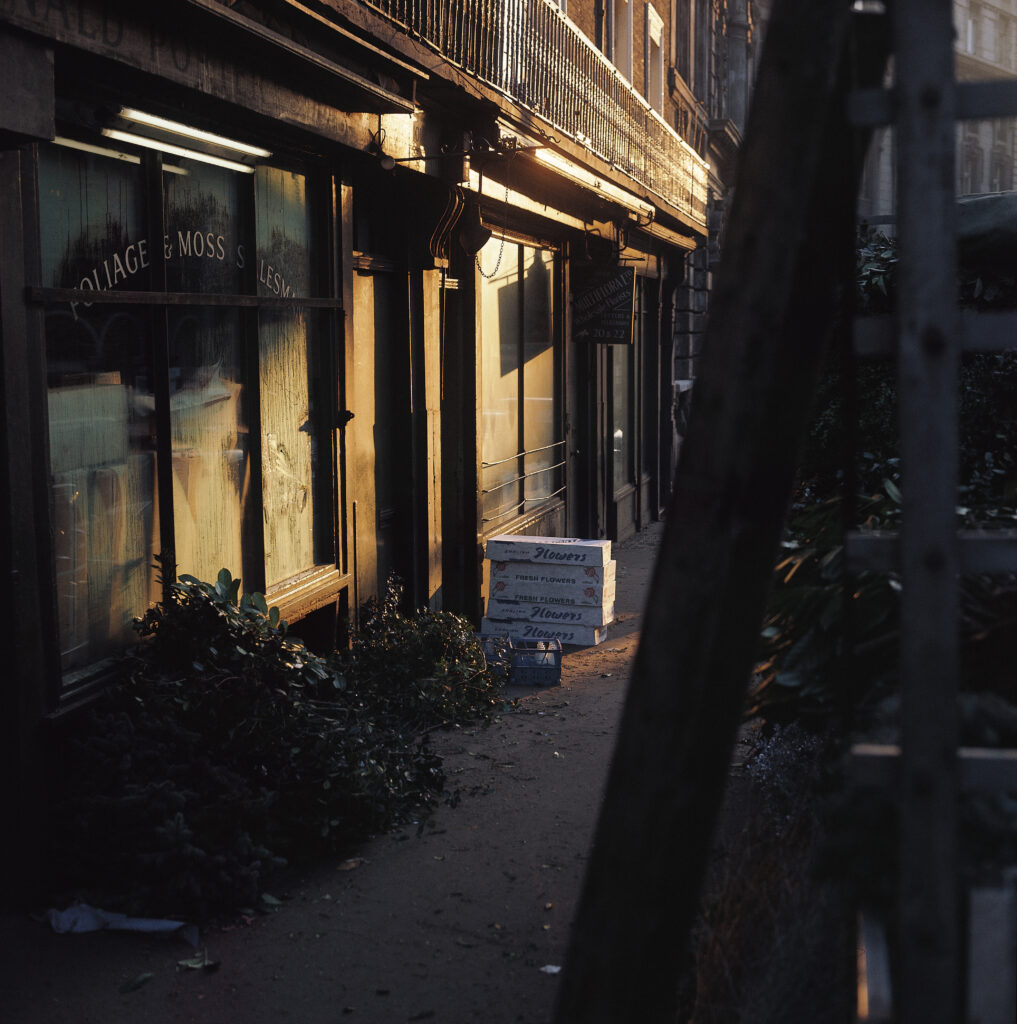
One of the Porters units at the old market
He had five sons working in the business, including my grandfather Ronald, and when Aaron died in 1948, he left a flourishing business. If I’m honest, my grandfather’s brothers were more interested in reaping the benefits of their father’s hard graft and spent all the money and lived the life! My grandfather, on the other hand, knuckled down to running the business and then went off on his own in the early ‘60s, creating Ronald Porter & Sons. Unfortunately, he died in his early 50s, in 1966, which is when my dad Brian and uncle Charlie took it on.
I’ve been in the market for 33 years now. As a child, I was always at the market and though I was very young, I do have memories of the old Covent Garden, sliding down the chutes into the cellars! Coming to this market, everything felt very space age – automatic opening doors was like being a spaceship to me at that age!
I always enjoyed being in and around the market and of course, it is in my blood, but my mum always pushed us away from the market. She gave us the best education she could because she knew what a hard life it is and the sacrifices involved. I went off and did motor vehicle engineering and worked in a dealership as a management trainee for while, but I was still living at home and one Christmas, I could see how busy my father was and went to give them a hand. That was it, once you’re in, you’re in.
Dad and Charlie ran the business until about a decade ago, before retiring and happily, they are both still with us. I loved working with him and my uncle. It was also a very good time in the economy and the market was a magical place to be – it always had a buzz and was great fun. As the industry has moved on, the market has changed and some of that fun and enjoyment has dwindled. It’s not gone altogether, but it’s harder work.
My older brother Barry had come into the business when he was 16 and I came in when I was 21 and we then ran the business for a few years and changed the name again to Porters Foliage, before he took a different direction and I bought him out.
My father encouraged me and my brother to do our own thing – he was very good at pushing us to make that effort. Big changes needed to be made to the way we sourced our product – the world had shrunk, it became easier to import and access new suppliers and I had started to travel and look for new suppliers around the world.
We found new sources in South Africa, to broaden our range of proteas and that type of produce, as well as South America and Australia. It is our diversity and ability to directly source items that aren’t likely to come through the Dutch auctions that gives us our USP. We were flying in from eight sources around the world before Covid, but it changed everything. It was devastating to the whole industry of course, but some wholesalers were affected more than others. For us it was very difficult because we didn’t have an online buying option at the time and that link into our suppliers and customers.
Our online portal opened us up to a potential new client base and raised our profile outside of the market. It’s another challenge; running an online element of your business is time consuming and has a cost attached, but the new generation coming through need the option of having things at the touch of a button and we recognise that. It is still a relatively small part of our business, but momentum is growing and we saw much bigger uptake of online sales during Christmas.
Where do you think New Covent Garden Flower Market is right now?
This market is taking stock of where we all are. The after-effects of Covid are still being felt. We got through it by borrowing money, but now we have to earn money to repay it.
Coming into the first quarter of 2023, for instance, we had had an OK Christmas ‘22 and we were looking forward to a steady year, nothing spectacular. Then, for mainly economic reasons, things just dropped off a cliff and we weren’t ready for that. The summer was steady and the last quarter was a bit better, but for my business, the last quarter is the most important period of the year by far, so if we’re quiet then, we are definitely in trouble.
Covid changed London and the way in which our industry supplies customers. Of the customer base we would have supplied pre-Covid, I’d say 10% didn’t make it through, while another 30-40% are still in business, but have removed their bricks and mortar retail element. They are working through webshops and on the telephone, but not face-to-face so much, which has a huge effect on the market.
People have placed a higher value on their time and are running their businesses with fewer staff and less resources. So, for some, coming to the market has become a question of time, simple as that. A lot of customers are buying to order, exactly what they need rather than speculating to sell onto a third party. Some are not coming to market as much as they would have, but even when they do, the purchases tend to be lower volume than they would have been prior to Covid.
The cost of transport, energy and documentation has also risen tremendously in the last three years, which has a compounding effect on the cost of the produce we sell here, so the price-point has become more expensive; undoubtedly too expensive for some.
That is our biggest challenge. We have broadened our horizons to attract customers that we may not have tapped into before. Moving forward though, we need to create more turnover, more volume, in order to sustain the market as a long-term viable proposition. I think there’s ability to expand. The key is adapting to the marketplace and the new breed of customer, which has a fresh outlook, as well as fresh ideas and expectations. They will work in a different way to traditional florists and we have to find our way to move with the evolution of the industry and work in a more flexible way.
Why does this Market remain as relevant to London’s floristry scene as ever?
Our aim is to inspire, that’s what we’re here for. Some of the most creative people in the country are our customers and when they come onto our stand, we have to inspire them to create something they weren’t going to create when they walked in.
There are secondary wholesalers around London that can offer a good service and a high percentage of what’s on offer in New Covent Garden. For some people that’s enough to get them through, but they will not get what they can get here.
I think the people who visit the market are inspired. Buying online is OK when you know what you’re buying, but the sensory side of it is still very important. We still have a unique offering – there is nowhere else where you can find the range and diversity we have at New Covent Garden Flower Market.
The key with our products is that it is very much a visual and sensory experience. You can’t smell a flower online or appreciate the texture of foliage online. You need to see it for yourself, smell it and touch it. You need to see two items side by side to know how they would physically work together, or whether you need to switch out and change for a different product. That sort of facility is still hugely important to many florists, who want to mix and match.
You now have a fifth generation of Porters in the fold, including your son, Sam...

Bryan with Sam, right, and Josh Souter
Sam is 21 and along with his cousin Aaron, who’s name of course harks back to Porter’s founding father, he is indeed the fifth generation of the family in the business.
Sam has been with the business three years now and Bryan thoroughly enjoys working with him. “Working with my son is a great experience. It’s lovely to have your family around you, to enjoy the time together and most of all it’s lovely to see them all develop as young adults, both in business and their understanding of life.
If you asked Sam if he saw himself working here, he’d say no, probably not, he came here by default and was given opportunities to do other things. But he is pretty laid back and was given the ultimatum that if he didn’t find something else, he’d have to come and work here until he did! He definitely enjoys the job, the market and the people. Does he enjoy the working hours and the routine – no, but that’s the challenge for everyone who works here. He’s still young, so we’ll see if this is his job for life or not. His life and his skills will develop and there is loads of scope for that to happen here.
Hopefully the team here will master how to run a business without me, as I won’t be here forever!
Finally Bryan, what does New Covent Garden Market mean to you?
For me, the market has always been part of my life and I want it so succeed and for everyone here to stick together. The strength of the market is made up by the combination of individual businesses, and it is that mixture that gives the market its uniqueness, its feel and its offer – as a collective we are much stronger.